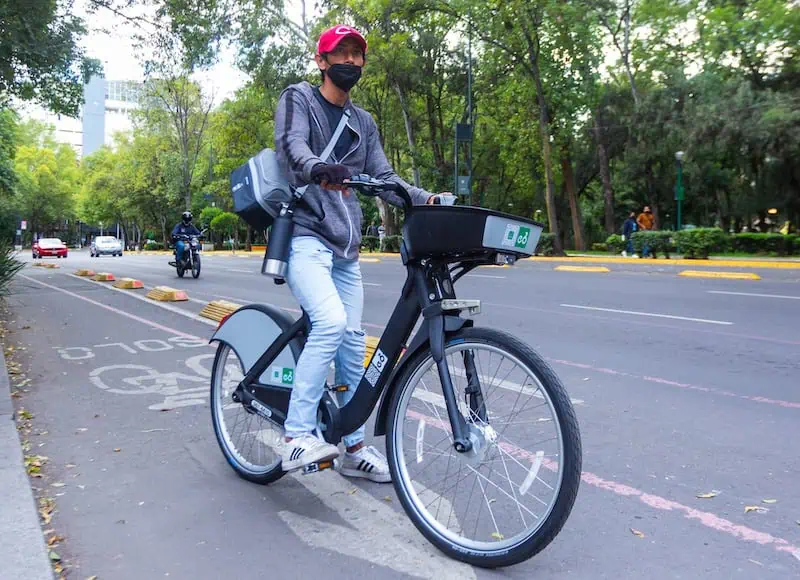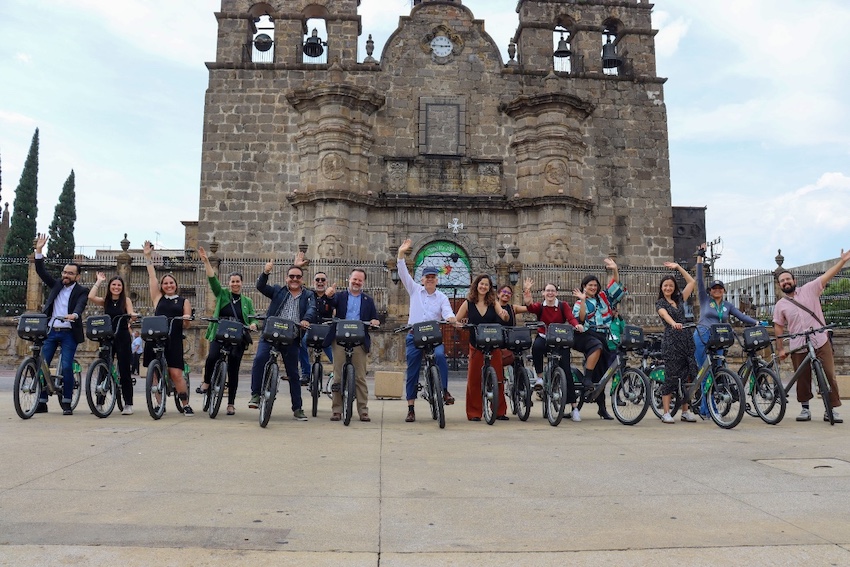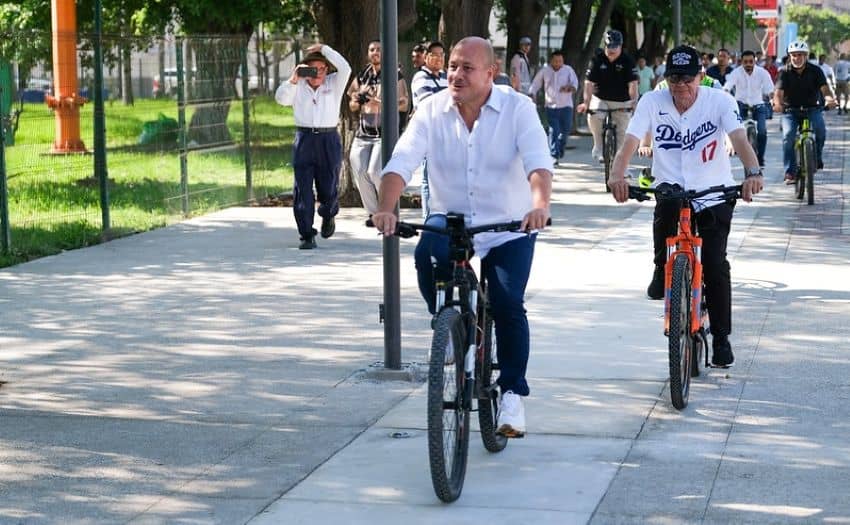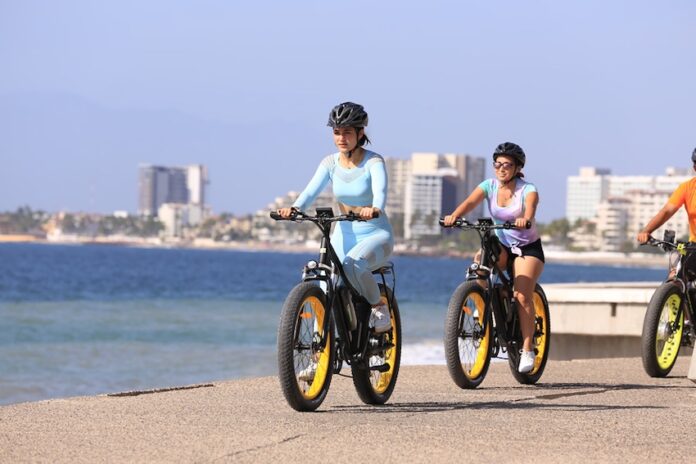Long known for its stunning beaches and vibrant streets, Puerto Vallarta is embracing a new chapter in its urban evolution, one focused on sustainability, public health and smarter mobility.

At the heart of the project is a vision to make Puerto Vallarta a model city for green transportation in Mexico. The initiative, championed by Mayor Luis Ernesto Munguía González, is being financed through the local tourism trust, which receives revenue from a levy known as the lodging tax, which funds and maintains public spaces, tourism infrastructure and citywide services. The approach ties tourism directly to urban improvement, ensuring that those who benefit from the city’s charm also contribute to its sustainability.
According to city officials, the project is expected to unfold in two stages. First, the city is focusing on revitalizing and expanding the existing network of bike paths. These routes will form the backbone of the program, connecting neighborhoods and key attractions.
At the same time, urban planners are studying which areas would benefit most from the installation of bicycle docking stations.
In an interview Aug. 18 with Tribuna de la Bahía, Munguía said locations under consideration include the intersection of Avenida Los Tules and Boulevard Francisco Medina Ascencio, Plaza Caracol, the southern end of the Malecón, the Universidad del Mar de Puerto Vallarta, and Plaza Lázaro Cárdenas. These sites were selected for their strategic importance, central access and available public space.
Once the infrastructure is in place, the second phase, deployment of the bicycles will begin. While details such as the number of bikes and operating model are still in development, city leaders have confirmed that the bicycles will be free to use, reinforcing the program’s commitment to accessibility and inclusion.
Puerto Vallarta isn’t starting from scratch. Across the world, in cities like Paris, Bogotá and nearby Guadalajara, free or low-cost public bike-sharing programs have shown significant success. These systems reduce car dependency, ease traffic congestion, improve air quality and promote healthier lifestyles.

Guadalajara’s MiBici program has become a reference point, demonstrating how strategic planning and community engagement can turn bicycles into key elements of urban mobility.
For Puerto Vallarta, a city where tourism drives the economy and climate change presents a growing threat, such a program offers a dual benefit. It supports local transportation needs while aligning the city with global environmental goals. Visitors will gain an eco-friendly, cost-free way to explore the area, while locals, many of whom lack access to private vehicles, will enjoy greater mobility.
Matthew Werter, owner of Vallarta Unified Health Solutions, sees the initiative as a step forward for both mental and physical health.
“As we learn more about our physical and mental health, the importance that exercise plays cannot be ignored,” Werter said. “This program provides an opportunity for people to get outside and enjoy the natural beauty that Puerto Vallarta has to offer. As a father, being able to hop on a bicycle and get some exercise with my son while enjoying this piece of paradise we call home only makes Vallarta an even better place to raise him.”
Still, the road ahead presents challenges. Bicycle safety is a concern, especially given the city’s cobblestone streets and often unpredictable traffic patterns. Some have voiced frustration with incomplete or narrow bike paths that leave cyclists exposed.
“I love the idea of this, but what about our roads?” asked resident Cecy Romero. “We have paths already, yes, but not a lot, and they cannot just be extended; they need to be fixed. People will hurt themselves on our roads.”

Safety is also a concern for Werter, although he remains hopeful.
“The worsening problem of traffic and pollution caused by the ever-increasing number of cars in Puerto Vallarta needs solutions that incentivize alternative modes of transportation,” he said. “Safety would be my greatest concern; however, I’m sure that Puerto Vallarta can use the successes seen in similar programs implemented in other cities as a template to ensure this program is successful here.”
City officials are also exploring how to address maintenance and security challenges, including keeping the bicycles in good condition and preventing theft or vandalism. Partnerships with experienced operators, possibly even Guadalajara’s MiBici, are being considered to bring best practices to Vallarta.
There is also a strong push to integrate the bicycle system into the city’s broader transportation upgrades. Puerto Vallarta has already introduced electric buses, with the first spotted on city streets in late August. Upgraded major intersections and new investments in parks and bridges are contributing to a larger vision of a more modern, connected city.
Programs like this are transformative not just because of the bicycles themselves, but because of the ripple effects they create. When people have access to clean, affordable and efficient transportation, their quality of life improves. Commutes become shorter. Air becomes cleaner. Public spaces become more vibrant.
In cities such as Copenhagen and Amsterdam, both global leaders in urban cycling, the benefits are reflected not only in health data seen in the Environmental Insights Explorer and reduced emissions as evidenced by both the Municipality of Copenhagen and the University of Oxford, but in the everyday lives of residents who feel freer, safer and more connected to their communities.
If thoughtfully implemented, Puerto Vallarta’s bicycle program could become one of the city’s proudest achievements by taking a bold step toward sustainability, equity and wellness.
The bikes may be free, but their value could be immeasurable.
Charlotte Smith is a contributing writer with over 20 years of experience as a writer and editor. An award-winning journalist, she actively seeks out stories that resonate with the world around us, while also maintaining a travel blog focused on her life adventuring across Mexico, specifically the states of Jalisco and Nayarit.
